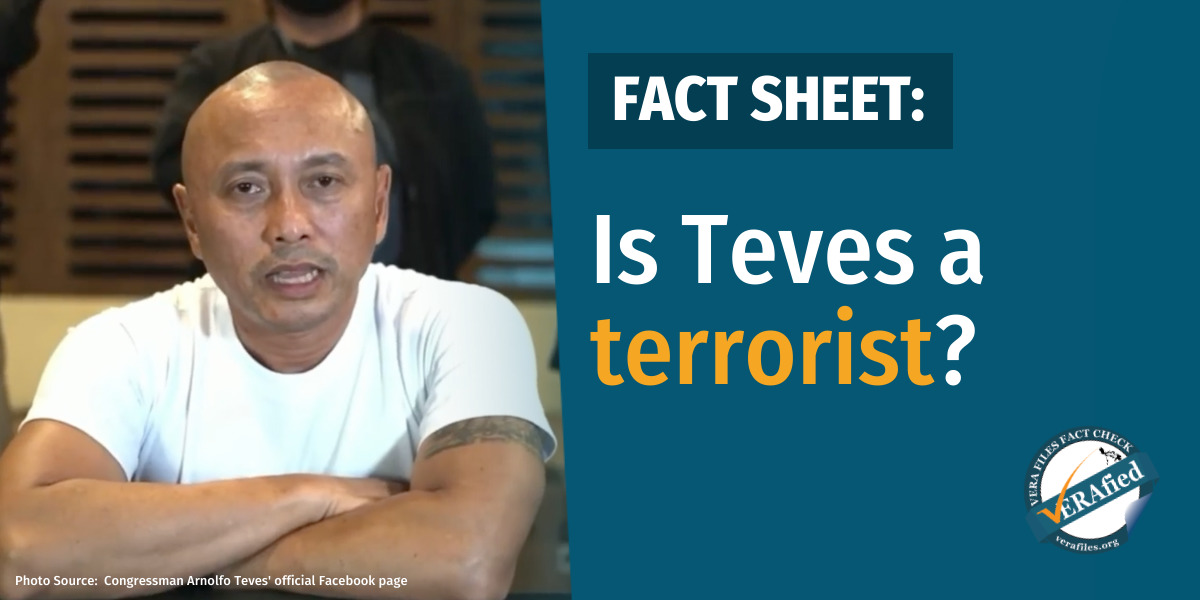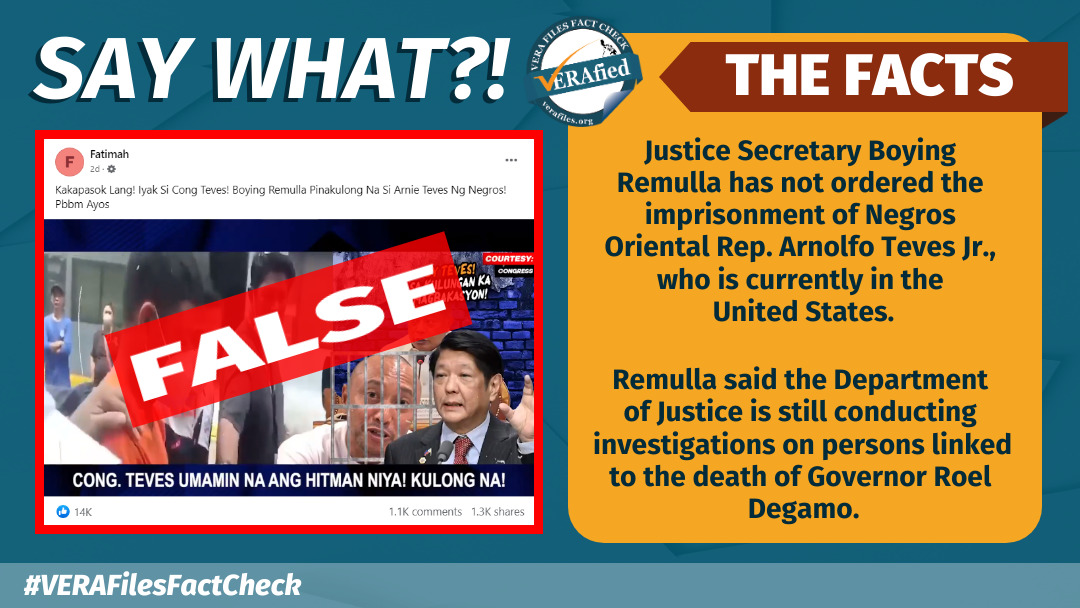The National Bureau of Investigation (NBI) filed multiple murder, frustrated murder and attempted murder charges against Negros Oriental Rep. Arnolfo Teves Jr. on May 17.
Teves is the alleged mastermind of the March 9 murder of Negros Oriental governor Roel Degamo and nine others. The charges against him in relation to the crime came weeks after Justice Secretary Jesus Crispin Remulla began proceedings to designate the congressman as a terrorist under the Anti-Terrorism Act of 2020 (ATA) or Republic Act No. 11479.
In 2020, the ATA was criticized for placing red-tagged individuals at further risk. (Read VERA FILES FACT SHEET: The dangers of red-tagging under the Anti-Terrorism Law)
As questions arise on whether the offenses filed against Teves constitute terrorism, VERA Files Fact Check looks into various definitions of the crime.
1. How do Philippine laws and the United Nations (UN) define terrorism?
Section 4 of RA 11479 defines terrorism as acts intended to:
- Cause death or bodily injury to any person, or endangers a person’s life;
- Cause extensive damage or destruction to a government or public facility, public place or private property;
- Cause extensive interference with damage or destruction to critical infrastructure;
- Develop, manufacture, possess, acquire, transport, supply or use weapons, explosive or of biological, nuclear, radiological, or chemical weapons, and;
- Release dangerous substances or cause fire, floods or explosions.
The Anti-Money Laundering Council may freeze the assets of designated terrorists or terrorist organizations.
The Human Security Act of 2007, the law repealed by the ATA, lists the crimes that constitute terrorism:
- Piracy in general and mutiny in the high seas or in Philippine waters;
- Rebellion or insurrection;
- Coup d’etat, including acts committed by private persons;
- Murder;
- Kidnapping and serious illegal detention;
- Crimes involving destruction (i.g. arson);
- Development, possession, acquisition, transportation or supplying of biological, nuclear, radiological or chemical weapons;
- Hijacking;
- Highway robbery; and
- Illegal and unlawful possession, manufacturing, dealing in, acquisition, or disposition of firearms and ammunition or explosives.
On the other hand, a 2004 resolution by the UN Security Council defines terrorism as:
“Criminal acts, including against civilians, committed with the intent to cause death or serious bodily injury, or taking of hostages, with the purpose to provoke a state of terror in the general public or in a group of persons or particular persons, intimidate a population or compel a government or an international organization to do or to abstain from doing any act, which constitute offenses within the scope of and as defined in the international conventions and protocols relating to terrorism.”
Source: UN Security Council, Resolution 1566 (2004), Oct. 8, 2004
2. Do the charges filed against Teves qualify as acts of terrorism?
According to lawyer Gilbert Andres of CenterLaw, the DOJ will need to prove to the Anti-Terrorism Council (ATC) that Degamo’s murder was committed to achieve any of the objectives of terrorism. “Murder is the more direct crime… but there should be probable cause for terrorism,” he said in a call with VERA Files Fact Check.
Remulla connected the law’s definition to Teves’ case by saying, “Gov. Degamo is the highest locally elected official in the whole of Negros Oriental and for that person to be killed in his own home by a group of professional soldiers, it shows us how brazen the crime was.”
BACKSTORY
Aside from designating Teves as a terrorist, Remulla said that the ATC could open a proscription case before the Court of Appeals. If granted, the proscription or declaration as an outlaw or terrorist is effective immediately and will last for three years.
Under the ATA’s Implementing Rules and Regulations, the DOJ must secure a recommendation from the National Intelligence Coordinating Agency and authority from the ATC. The person or organization to be designated as a terrorist must also be given due notice and an opportunity to be heard.
Editor’s note: VERA Files is one of the petitioners against the Anti-Terrorism Act of 2020 before the Supreme Court.





